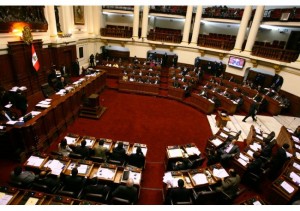Congress’ Move to Increase the Reach of Peru’s Regional Governments

In response to past disapproval of the scope of Lima’s role in regional affairs, Peru has quite literally mobilized an effort that should strengthen the voice of regional governments in the national decision-making process. The “mobile Congress” is now set to begin a tour of the country on September 8 to meet with regional administrations and local officials. The second stage of the program would create several “macro-regions” that would effectively serve as a forum to discuss regional and local issues. This action follows other authorized initiatives that have demonstrated Congress’ desire to preserve the well-being of the population and the readiness of the government to make itself more accessible to the average Peruvian. For example, Amnesty International reported that on August 25, Congress passed an unprecedented law that requires national officials to consult with indigenous communities on any development project that affects their homeland.
However, Latin News reported that on August 31, critics expressed their displeasure over certain aspects of the new proposal. One point of contention is the cost of the Congressional trip, since transportation and accommodation for all 130 members represents a heavy overhead. There is also doubt about whether establishing macro-regions would be truly effective in solving local issues. Traditionally, the complaint at the regional level has been that government initiatives have not been capable of efficiently utilizing federal funds. Nevertheless, it is laudable that collaboration between different levels of government is taking place in order to improve the welfare of the Peruvian people.

